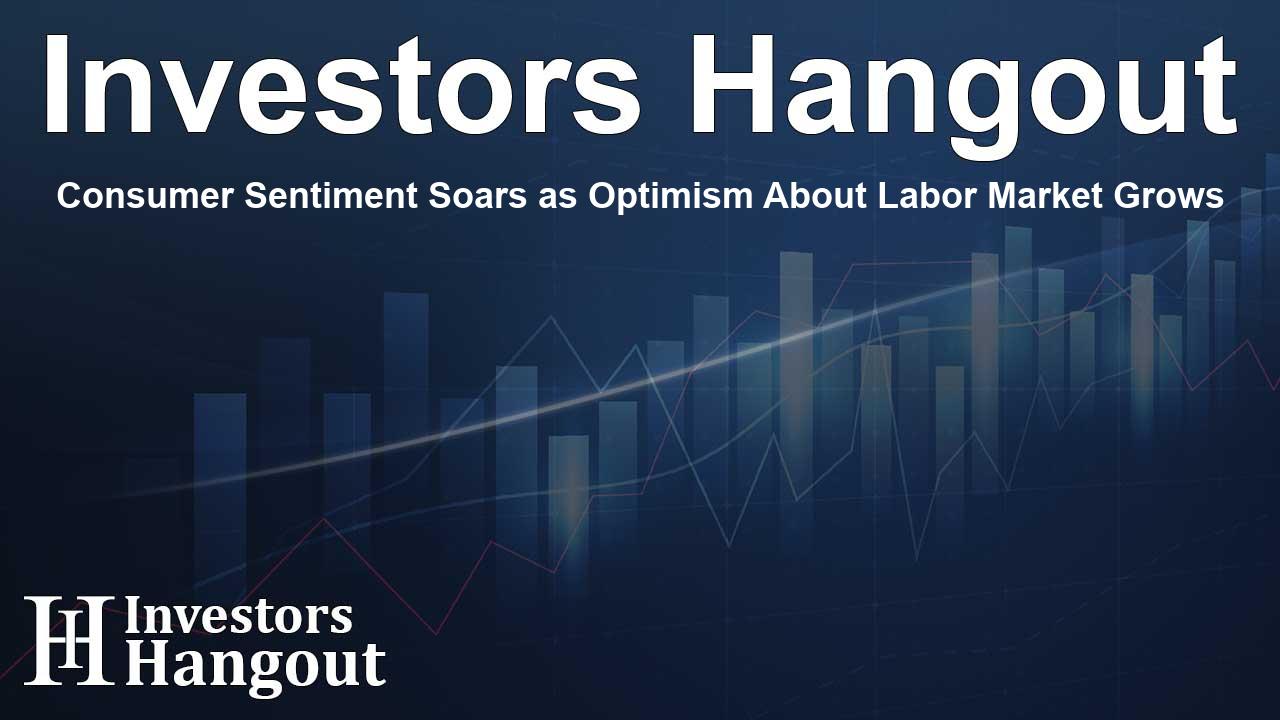Consumer Sentiment Soars as Optimism About Labor Market Grows

U.S. Consumer Confidence Grows in November
The recent increase in U.S. consumer confidence showcases an uplifting trend influenced by a robust labor market and a dynamic stock market performance.
Key Updates on Consumer Confidence
The Consumer Confidence Index, reported by the Conference Board, has risen to 111.7 in November, a notable jump from an adjusted figure of 109.6 in October. This upward move exceeded the expectations of economists who anticipated a smaller increase to 111.3.
Insights from the Conference Board
Dana Peterson, the chief economist at the Conference Board, explained that the enhancement in consumer confidence largely stems from improved perceptions regarding current economic conditions, especially the labor market.
Future Job Prospects Look Bright
In addition to assessing the present situation, consumers demonstrated significant optimism about future job availability. This aspect of consumer sentiment has reached levels not seen in nearly three years, reflecting a dramatic shift in outlook.
Impact of Market Dynamics
The surge in confidence can be further attributed to the recent positive dynamics within the stock market, which has played a crucial role in shaping consumer perceptions. Many believe that a strong stock market can result in increased spending and investment.
Final Thoughts on Economic Outlook
As consumer sentiment continues to rise, analysts will keep a close watch on how these trends affect overall economic growth and consumer spending in the upcoming months. While the labor market remains a focal point for future advancements, the correlation between consumer confidence and stock market performance cannot be underestimated.
Frequently Asked Questions
What drives increases in consumer confidence?
Increases in consumer confidence are often driven by improved perceptions of the labor market, overall economic conditions, and positive stock market performance.
How is consumer confidence measured?
Consumer confidence is measured through various indices, primarily the Consumer Confidence Index, which surveys perceptions of current and future economic situations.
Why is consumer confidence important?
Consumer confidence is crucial because it influences consumer spending, which accounts for a significant portion of economic activity in the U.S.
What was the Consumer Confidence Index in November?
The Consumer Confidence Index rose to 111.7 in November, indicating an upward trend in consumer sentiment.
How do economic conditions affect consumer confidence?
Economic conditions, such as job availability and market stability, significantly impact consumer confidence, as they shape how consumers view their financial future.
About Investors Hangout
Investors Hangout is a leading online stock forum for financial discussion and learning, offering a wide range of free tools and resources. It draws in traders of all levels, who exchange market knowledge, investigate trading tactics, and keep an eye on industry developments in real time. Featuring financial articles, stock message boards, quotes, charts, company profiles, and live news updates. Through cooperative learning and a wealth of informational resources, it helps users from novices creating their first portfolios to experts honing their techniques. Join Investors Hangout today: https://investorshangout.com/
Disclaimer: The content of this article is solely for general informational purposes only; it does not represent legal, financial, or investment advice. Investors Hangout does not offer financial advice; the author is not a licensed financial advisor. Consult a qualified advisor before making any financial or investment decisions based on this article. The author's interpretation of publicly available data shapes the opinions presented here; as a result, they should not be taken as advice to purchase, sell, or hold any securities mentioned or any other investments. The author does not guarantee the accuracy, completeness, or timeliness of any material, providing it "as is." Information and market conditions may change; past performance is not indicative of future outcomes. If any of the material offered here is inaccurate, please contact us for corrections.